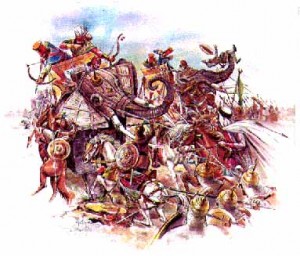The Greek academies had collected a lot of medical and anatomical knowledge. They had the works of Galen, the Hippocratic writings, and above all they had the anatomical works of Herophilos, an early scientist in something like the modern sense, who performed and recorded dissections of human bodies and recorded his findings in considerable detail.
The academies were the inheritors of the tradition of Plato, Aristotle and others, although the tradition was not continuous. It would be misleading to present them as purely scientific in the modern sense. Neo-Platonic doctrines were, on the whole, more mystical and dogmatic than scientific. However, free inquiry in philosophy and science was possible in the academies. Free inquiry was a dangerous thing under early Christian rule, and the academies were forcibly closed by the Christian Emperor Justinian in CE 529.
Not everything was lost, because the main Academy philosophers and scientists took asylum in Persia, under the protection of king Khosrau 1. At the time, Persia was a Zoroastrian country.

Shoot straighters, you bastards! Use bigger elephants! The fall of Persia to Arab Muslim forces, 633-644.
Some of the original group to travel to Persia ultimately returned to Greece. However, others remained, as did their books, or copies of their books. When the Muslim Arab invasion of Persia began in CE 633, the academy’s successors had been based in Tehran for nearly 100 years.
(When the invasion was completed, in CE 644, the conquest of Persia complete, the Muslim conquerors of Persia found themselves in possession of scientific texts and knowledge which Christians under Justinian had deliberately tried to destroy.
This is the most important reason why Islamic countries were for a time ahead of Christian countries in medicine and other sciences.
So this knowledge was lost to Europe. Meanwhile, the Zoroastrians of Persia, who had invited those philosophers to come with their books, began to be persecuted and killed by their Islamic conquerors.
If I had a time machine, one of the things I’d do would be to go back to Persia in 633, and encourage Persia’s archers to shoot a little straighter and their other defenders to fight a little harder.
But the consequence in the West was that, with Christian Emperors having stamped out the long Greek tradition of free enquiry, the universities that were set up were Christian-controlled, and reflected Christian attitudes such as hostility to sex.
Therefore, genitals became “pudenda”, shameful parts. Modern anatomists, following their 15th century predecessors, still use the term.
